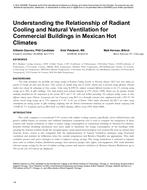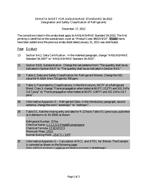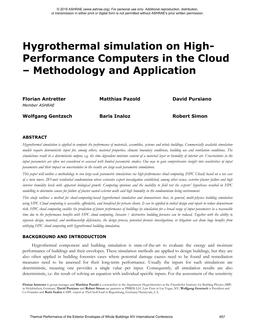Traditional design methods for heating and airconditioning systems emphasize peak cooling load calculations as the basis for system design and equipment selection. In an HVAC design course, ASHRAE peak load calculation methods are taught but major limitations in the techniques are also exposed. First, the approximation of “correction factor” methods (CLTDs and CLFs) are exposed by comparing 24-hour load profiles calculated from detailed heat balance computer-based methods. This approach was borrowed from Dr. Curtis O. Pedersen. Next, the need to consider annual performance as well as peak load in system design is developed. Students use the Building Loads Analysis and System Thermodynamics( BLAST) energy analysis program to carry out annual hour-by-hour load, system, and plant calculations to determine the expected energy use for various design alternatives. Procedures for “optimizing” designs considering peak demand and annual performance are developed. This paper will describe the above methods in detail, outline the computer-related problems (30 students doing 10 to 15 annual simulations of a multizone building puts a serious load on computer facilities, and show samples of student work.
Citation: Symposium, ASHRAE Transactions, vol. 95, pt. 1, Chicago 1989
Product Details
- Published:
- 1989
- Number of Pages:
- 4
- File Size:
- 1 file , 600 KB
- Product Code(s):
- D-CH-89-21-3


